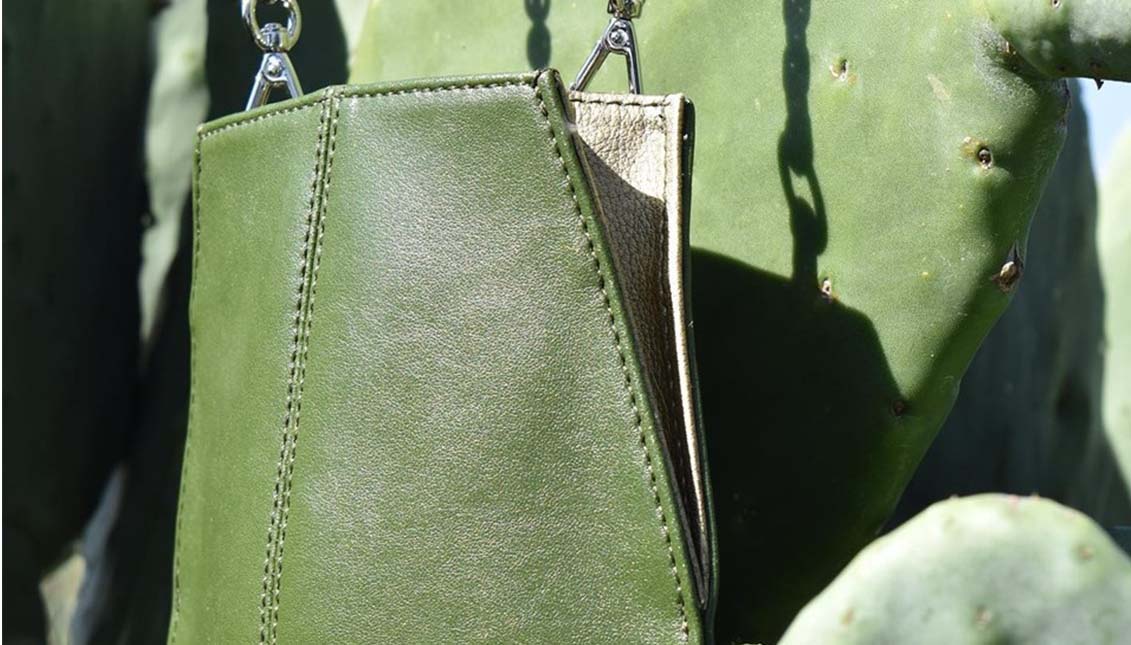
Mexico’s ‘green’ business: a battle for vegan leather
Several companies are already marketing biomaterials created with cactus or with the bacteria present in the remains of strawberry and mango. Is Mexico on the…
In a country like the United States, where the BigMac culture has given way to healthy alternatives, the vegan lifestyle has grown by 500% over the past five years.
Either by conscience, religion, necessity or temporary fashion, the truth is that this population is made up of more than 600 million people worldwide and is in unstoppable rise, especially in the United States and Mexico, where entrepreneurs are exploring new ways to meet the high demand for all kinds of products, not only food and cosmetics.
Earlier this year, Mexico's Polybion announced the creation of a bio textile from agro-industrial wastes, which took advantage of the transformation of bacteria inside into mango and strawberry remains to obtain a material that resembled leather.
Desserto is the first leather made from nopal cactus, which abound in Mexico
But now two Mexican entrepreneurs have achieved organic and vegan leather that it’s just as resistant and elastic as the synthetic or animal ones, but sustainable and made from cactus.
More specifically, from nopales, a type of cactus that abounds in the country and doesn’t require water to grow.
Adrián López Velader and Marte Cázarez, creators of the product, said “Desserto” is the first organic leather made with this plant and whose production does not use any type of toxic chemical, phthalate or PVC, even if it is only partially degradable.
At an ocean away, and of Hispanic roots, the creator of Ananas Anam, Carmen Hinojosa, presented last year a sustainable alternative to leather made from pineapple leaves, Piñatex, used by manufacturers such as Hugo Boss.
RELATED CONTENT
Hinojosa told Reuters that, although pineapple fibers are processed in Spain, their cultivation and fiber peeling is done in the Philippines.
Large chain stores have been joining the “veggie” fashion while on the other side of the hall ethics has no place
Scientists and manufacturers are investigating new materials from grape residue, coffee grounds and even mushrooms.
However, to what extent does the absence of exploitation of animals exclude or include labor? How can vegan consumers be sure that their purchase is ethically consistent at all levels?
Now that numerous celebrities and designers have jumped into the race for ecological fashion and large chains create “veggie” clothing lines, on the other side of the hall ethics has no place.
We should review our principles and maybe ask to what extent a thriving business is also a thriving opportunity for the environment or just another problem for it.











LEAVE A COMMENT:
Join the discussion! Leave a comment.